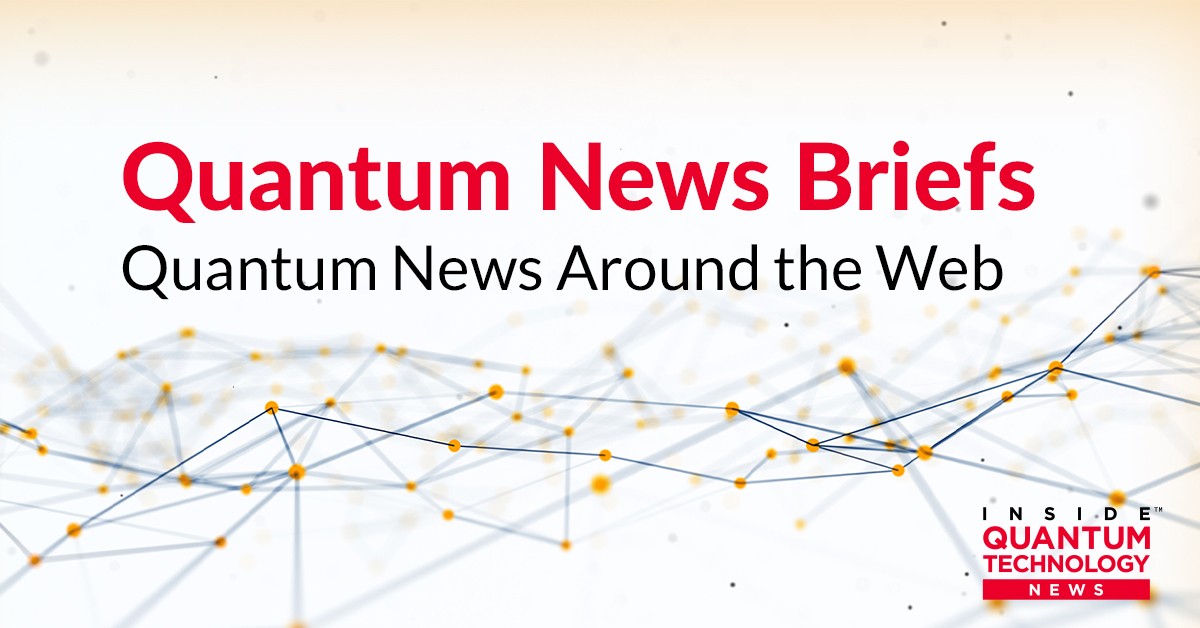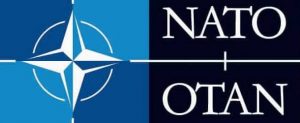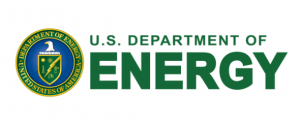Quantum News Briefs September 28: NATO is breaking new ground to harness power of quantum & make communications impossible to intercept & hack; Zapata Computing Welcomes New Advisor Lieutenant General Michael Groen; Computer Science Faculty Wins DOE Grant to Study Quantum Computing Advantages & MORE

Quantum News Briefs September 28 opens with news from NATO ‘s Peace & Security Program R&D addressing quantum computing, sensing & communications, followed by Zapata Computing’s announcement it has added Lieutenant General (USMC, Retired) Michael Groen as an advisor to the company to help with go-to-market strategy for its growing public sector. Third is notice of a $400,000 DOE award to faculty to study quantum computing advantages. And MORE.
*****
NATO is breaking new ground to harness power of quantum & make communications impossible to intercept and hack

NATO Science for Peace and Security (SPS) Programme research and development projects have been examining the security-related applications of quantum technologies, addressing their three main fields: computing, sensing and communications. Quantum computing and sensing are improving the abilities of computer and remote measurement technologies to levels that they are not traditionally able to achieve. In the field of quantum communications, SPS activities are showing the most promising results. These projects develop systems for the encryption and secure transmission of information using quantum key distribution (QKD) and post-quantum cryptography (PQC). Through these techniques, they respond to rising security concerns related to new technologies – such as quantum computers, which can decipher secret communications – by preventing unauthorised access.
Innovative projects led by scientists in NATO and partner countries are breaking new ground to harness the power of quantum to make communications impossible to intercept and hack. The application of these quantum technologies in the security and defence sectors could help to future-proof the transmission of information, protecting it from increasingly advanced hacking systems and contributing to NATO’s efforts to maintain its technological edge.
NATO’s new Strategic Concept, agreed by Allies at the 2022 Madrid Summit, recognises the critical role of technology, and in particular, emerging and disruptive technologies (EDTs), in shaping the future of the Alliance. To explore the potential and risks associated with EDTs, the SPS Programme is supporting research activities that address technological trends in EDTs, like artificial intelligence, autonomy, bioengineering, and especially quantum technologies. Future SPS activities investigating quantum will look at how to integrate both QKD and PQC to secure information infrastructure in the best and most holistic way for the Alliance.
*****
Zapata Computing Welcomes New Advisor Lieutenant General Michael Groen

Zapata announced that it has added Lieutenant General (USMC, Retired) Michael Groen as an advisor to the company. Groen brings more than three and a half decades of military and public sector experience to the table, serving in a leadership role for multiple security and intelligence divisions of the U.S. Government. As an advisor to Zapata, he will be responsible for helping the company with product and go-to-market strategy for its growing public sector offering.
“It’s clear that the DOD, intelligence community and public sector are increasing their focus on quantum computing, considering the potential useful applications of the new technology, as well as the threat that it presents,” said Christopher Savoie, CEO and co-founder of Zapata Computing. “We continue to see increasing interest in our software and our expertise from the federal government, and we’re looking forward to Lieutenant General Groen’s guidance and expertise to continue to capitalize on that momentum.
“Throughout my career in the public sector I have focused on driving transformational change in military capabilities. Quantum computing represents the next generation of technology that will be truly transformational,” added Lieutenant General Groen. “There’s no question that the pace of digitally enabled defense transformation is increasing. That’s exactly why it’s so important for the U.S. government to get quantum ready now, and it’s also the reason I’m so excited about working closely with the team at Zapata.”
*****
Computer Science Faculty Wins DOE Grant to Study Quantum Computing Advantages
 Supartha Podder, an assistant professor in the Department of Computer Sciences, has received a two-year, $400,000 grant from the Department of Energy (DOE) to study the power of quantum witnesses.
Supartha Podder, an assistant professor in the Department of Computer Sciences, has received a two-year, $400,000 grant from the Department of Energy (DOE) to study the power of quantum witnesses.
The grant is part of national $15 million initiative by the DOE to fund basic research to explore potentially high-impact approaches in scientific computing and extreme-scale science.
Podder studies quantum advantages in solving computational tasks; a witness is a piece of data that certifies the answer to a computation. Some problems are easy to verify once a little help regarding the solution is provided, like the sudoku puzzle, and a witness can be thought of as such help.
The research will examine quantum witnesses through new perspectives to explore and better understand quantum witnesses. To do this involves designing new quantum algorithms, proving optimality of classical witnesses and investigating many different quantum mechanical properties of quantum witnesses.
Podder hopes that this work will shed light on the mystery of quantum advantage, which can ultimately lead to having exponential quantum advantage for certain types of practical computational problems. If proven correct, such extreme-scale computing would ultimately save time, energy and space to solve many of the computational problems worldwide that modern computers have difficulty completing.
*****
Jeff Thompson Wins New Horizons Prize in Physics for Neutral-Atom Quantum Computing
The Breakthrough Prize Foundation has awarded Jeff Thompson a 2023 New Horizons in Physics Prize for early-career researchers who have made a substantial impact in the field. Thompson is one of six recipients to share this year’s citation for “the development of optical tweezers to realize control of individual atoms.”
By isolating and controlling individual atoms, Thompson, an associate professor of electrical and computer engineering, and his colleagues developed a new system for processing information in a quantum computer. Based on neutral ytterbium atoms, the system is especially robust and could be useful in quantum error correction, a key hurdle in the quest to build quantum computers at a practical scale. Thompson previously received a Presidential Early Career Award for Scientists and Engineers (PECASE) from the Army Research Office, a CAREER Award from the National Science Foundation and a Sloan Research Fellowship in Physics. He joined the Princeton faculty in 2016 and was promoted to associate professor earlier this year.
The Breakthrough Prize Foundation is awarding a total of $15.7 million in 2022 to support scientists, engineers and mathematicians who are enabling life-changing technologies and revealing the universe beyond the horizons of current human knowledge. The New Horizons Prize is given in two categories, physics and life sciences. Each prize is $100,000.
*****
Sandra K. Helsel, Ph.D. has been researching and reporting on frontier technologies since 1990. She has her Ph.D. from the University of Arizona.



















